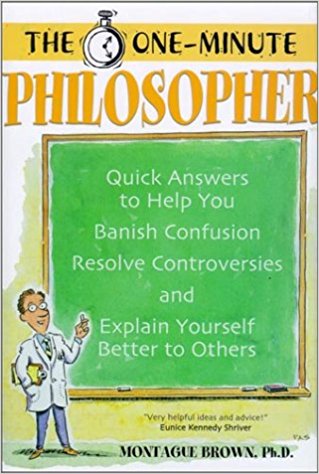By Montague Brown, Catholic Education Resource Center
Tolerance
Acceptance of a wide range of behavior
 Tolerance is the willingness to accept actions we believe to be inappropriate or even wrong because it would be worse to take action against them. Tolerance is community-oriented. Ideally, all bad behavior should cease, but it is unrealistic to think that society could succeed in enforcing this ideal. Tolerance understands this.
Tolerance is the willingness to accept actions we believe to be inappropriate or even wrong because it would be worse to take action against them. Tolerance is community-oriented. Ideally, all bad behavior should cease, but it is unrealistic to think that society could succeed in enforcing this ideal. Tolerance understands this.
Determining what should and what should not be tolerated takes experience and prudence. Every society must tolerate some wrongdoing, because the price of eliminating it might be greater than the price of allowing it. For example, so long as private wrong doing does no serious harm to the public, tolerance is required; for the invasion of privacy necessary to correct every personal fault would likely be worse than the fault itself.
However, it cannot be that serious wrongdoings should be tolerated for social order. Some situations warrant the toleration of some wrongdoing, but no situation makes every act permissible. We should, as a society, tolerate a certain amount of rudeness in the name of free speech and arrogance in the name of individual expression. But to tolerate crimes such as rape and murder would be wrong, since tolerating them would do greater harm to the community than
“I think that the state ought to
tolerate every principle of philosophy;
nor is there an instance, that any
government has suffered
in its political interests
by such indulgence.”
David Hume
Concerning Human Understanding, Sect 11, 114
Relativism
Acceptance of all behavior
Relativism is the assumption that there is no right or wrong. No action is considered better or worse than any other. If this is so, all actions are equally acceptable. Relativism is profoundly anti-community. If there are no standards of morality to which we should adhere, tolerance is no better than intolerance.
Relativism cannot distinguish between more or less serious wrongdoing. If I am a relativist, I cannot (if I am to be consistent) praise or blame any moral position. If I blame you for some action, you could always reply that my judgment is relative to my particular time, culture, upbringing, personality, etc., but not to yours. Since you are differenct from me in these respects, I cannot rightly criticize your action.
There are degrees of relativism. Ethics could be judged to be relative to a particular culture, era, economic class, gender, or group. Ultimately, however, such group relativism tends to lead to individual relativism; for if there are no universal rights and wrongs, there is no reason why anyone in a certain group or culture should abide by the relative values of that group or culture. Tolerance arises out of a concern for the community, but relativism rules out the possibility of common values and, hence, community.
“And are things relative to individuals,
as Protagoras tells us? For he says that man
is the measure of all things, and that things
are to me as they appear to me, and that
they are to you as they appear to you.”
Plato
Cratylus 386a






 Montague Brown. “Tolerance/Relativism.” In The One-Minute Philosopher (Manchester, NH: Sophia Institute Press, 2001) 50-51.
Montague Brown. “Tolerance/Relativism.” In The One-Minute Philosopher (Manchester, NH: Sophia Institute Press, 2001) 50-51.
 Montague Brown began a lifelong love affair with philosophy by reading the Dialogues of Plato. He earned a Ph.D. in philosophy from Boston College and now holds the The Richard L. Bready Chair of Ethics, Economics, and the Common Good at St. Anselm College in New Hampshire. The author of
Montague Brown began a lifelong love affair with philosophy by reading the Dialogues of Plato. He earned a Ph.D. in philosophy from Boston College and now holds the The Richard L. Bready Chair of Ethics, Economics, and the Common Good at St. Anselm College in New Hampshire. The author of 

